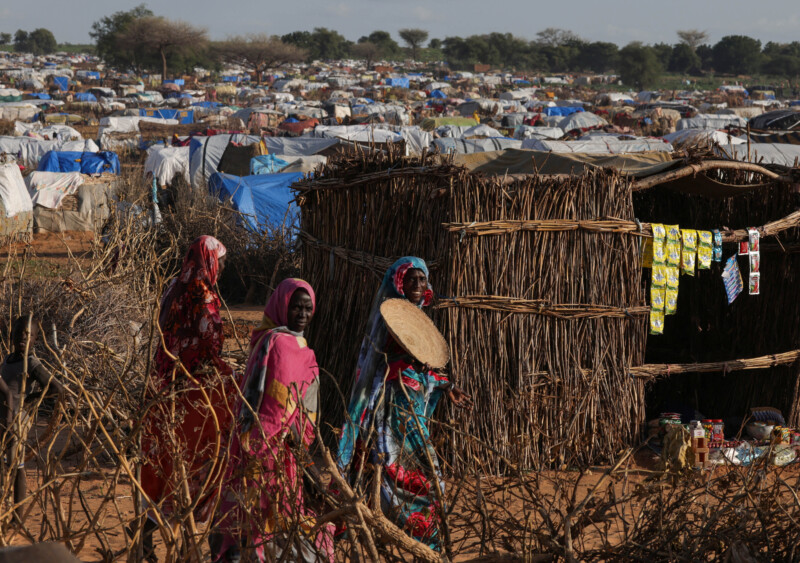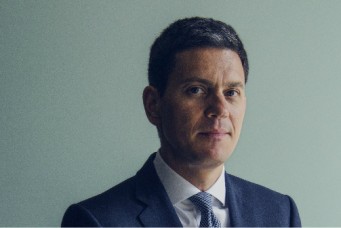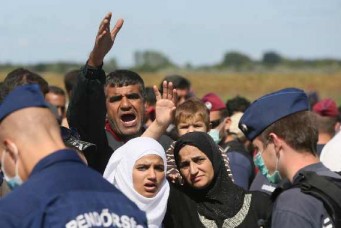World Refugee Day Highlights Growing Challenges
The growing rate of refugees across the globe constitutes an international crisis. Supporting these displaced people requires acknowledging the consequences of conflict and building resilient frameworks to protect refugee rights

June 20 marks World Refugee Day, a United Nations initiative to recognize the roughly 120 million people who have been forcibly displaced from their homes due to conflict or persecution; of them, only 37.6 million have managed to obtain refugee status. These individuals and families face incredible struggles, forced to leave everything they know behind, move to new host lands with different cultures, and wrestle with the complex legal process of obtaining refugee status.
2023 and 2024 have been particularly difficult for refugees and the global networks desperately trying to assist them. The UN reports that the number of people forcibly displaced has continued to rise for 12 consecutive years. This is attributed to many factors, including prolonged violent conflict in areas such as Sudan, the Democratic Republic of the Congo, and Myanmar. Syria alone has 13.8 million people displaced within and outside its borders. The trend has not been steady, either. The last five years has seen a 50 percent increase in forcible displacement, leading to the international community to call for conflicting groups to respect international law and the basic laws of war.
The rights of Palestinian refugees in particular have come to the forefront in recent months, as explored in our Spring 2024 issue, “Destroying Hope”, which examines the importance of the UNRWA, the UN’s Palestine refugee agency. There are over 7 million Palestinian refugees across the world; over 1.5 million of these refugees live in camps across Jordan, Lebanon, the Syrian Arab Republic, the Gaza Strip, and the West Bank. The Gaza Strip alone hosts 1.7 million refugees, displaced from their homes in historic Palestine during the 1948 Nakba, and now displaced again through Israel’s war on Gaza. The Spring issue’s foreword by Antonia De Meo, UNRWA’s Deputy Commissioner-General for Operational Support, emphasizes the critical role the organization plays in supporting and protecting these refugees.
Lex Takkenberg, senior advisor with the Arab Renaissance for Democracy and Development (ARDD), examines how Israel views UNRWA as a threat because it protects the right of return of the descendants of the roughly 75% of Palestinians displaced during the Nakba, specifically. For years, Israel has targeted the organization, attempting to discredit its reputation and undermine its function; these attacks have taken on new levels during Israel’s war on Gaza.
Palestinian refugees have suffered not only from losing their homeland and being subjected to harsh living conditions in camps (or under total blockade, as in the Gaza Strip), but also to becoming pawns in a wider political game of wealthy donors. Anne Irfan, a leading expert on Palestinian refugee rights and colonial displacement, explores how international political machinations can have dire consequences on the lives of Palestinians on the ground. In a similar vein, Palestinian researcher and policy analyst Shatha Abdulsamad explains how international aid to refugees from donor countries, specifically the United States, is a form of political theater to cover up these countries’ complicity in the continued displacement and mistreatment of the Palestinian refugees.
Beyond Palestine, the Middle East and North Africa region is particularly rife with conflict and, as a result, displaced peoples. In Afghanistan, women are facing a gender apartheid under the Taliban; many have fled, but others remain trapped, as geopolitical and global security analyst Tugela Pepin explains. Meanwhile, climate change is exacerbating existing conflicts and creating new ones across the region, leading to mass levels of displacement. Yet, in the absence of an international framework which recognizes climate refugees, many cannot obtain refugee status or the support and rights this status offers, explains environmental researcher Zeina Moneer.
Economist and policy adviser Hadi Fathallah examines the role of food insecurity in particular, analyzing its impacts on refugees living across Syria and its neighboring countries and demonstrating how continued instability can both hurt current refugees and contribute to conflicts that will create more refugees. Rami G. Khouri, founding director and senior policy fellow of the Issam Fares Institute for Public Policy and International Affairs at the American University of Beirut, analyzes how a global indifference to human suffering leads to a vicious cycle of civilian death, suffering, and displacement, playing out in particular in the Syrian conflict.
The MENA region is a microcosm of major conflicts around the world that have resulted in mass numbers of refugees in recent years. An interview with David Miliband, CEO of the International Rescue committee and former British Foreign Secretary, explores how the refugee crisis has reached unprecedented levels in recent years, marking global highs not seen since World War II. Miliband explains the causes of the crisis, why international support for refugees is so difficult to obtain, and what can be done to improve the situation. David Arnold, Lorenza Rossi, Grace Benton, and Nina Stuurman explore how to empower displaced peoples, refugees or otherwise, in the face of violent conflict and instability throughout the world.
Maysa Ayoub, associate director of the Center for Migration and Refugee Studies at the American University in Cairo, explores this challenge in Africa, examining how refugees are often hosted in neighboring countries which may be ill-suited to the task as they struggle with their own domestic economic and political instabilities. In a similar vein, Aderanti Adepoju, head of the Human Resources Development Centre at the University of Lagos, Nigeria and former president of the Union for African Population Studies, analyzes the refugee crisis in the context of the Global South more generally, examining how strengthening relations between Global South countries can help protect the stability of host countries and improve the lives of migrants. Ibrahim Awad and Usha Natarajan also emphasize the importance of not allowing political narratives from the Global North to obscure the realities of migrants in the Global South and the importance of prioritizing the perspectives of the South.





